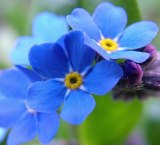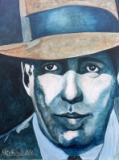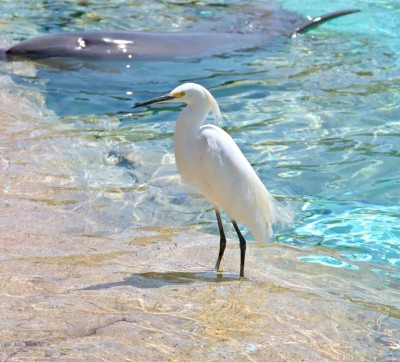Boxers
Boxing great Henry Armstrong hammered away at discrimination in the 1930s and 1940s by refusing to fight in segregated arenas.

Earvin "Magic" Johnson was one of professional basketball's most popular stars. He won five championships with the Los Angeles Lakers in the 1980s before he was forced to retire after contracting the human immunodeficiency virus (HIV). Johnson accomplished virtually everything a player could dream of during his 13-year NBA career, all of which was spent with the Los Angeles Lakers. He was a member of five championship teams. He won the Most Valuable Player Award and the Finals MVP Award three times each. He was a 12-time All-Star and a nine-time member of the All-NBA First Team.
Born August 14, 1959, in Lansing Michigan, Earvin Johnson loved basketball even as a child. His father, Earvin Sr. was an assembly worker for General Motors and his mother Christine was a school custodian. The fourth of seven children, Earvin Johnson Jr. attended Everett High School, where in 1977 they won the basketball state championship. Earvin got his nickname "Magic" while still in high school when he recorded a triple-double of 36 points, 18 rebounds and 16 assists in a game. After Fred Stabley Jr., a sports writer for the Lansing State Journal, gave him the moniker, and it stayed with him throughout his career, despite the fact that his His mother disapproved, thinking the nickname sounded blasphemous.
Although recruited by a variety of Universities to play basketball, Earvin Johnson chose Michigan State to be close to his home and family. During his Sophomore year Magic Johnson helped lead the Spartans to a 75-64 national title win against Larry Bird and Indiana State. The game is said to be the most watched college basketball game ever. Voted All American, and MVP of the Final Four Tournament, Magic Johnson had a college average of 17.1 points, 7.6 rebounds, and 7.9 assists per game, and was ready to turn pro. Quitting school Magic Johnson was drafted by the Los Angeles Lakers in 1979.
Johnson said that what was "most amazing" about joining the Lakers was the chance to play alongside Kareem Abdul-Jabbar, the team's 7 foot 2 inch center who became the leading scorer in NBA history. Leading the L.A. Lakers to the NBA championship in his rookie season, and winning the Most Valuable Player award for the playoffs set Magic Johnson in a league all his own. In his second season, Johnson feuded with the Lakers' coach, Paul Westhead, and demanded to either be traded or have the coach fired. Westhead was fired the next day, and the Lakers won a second championship that season. All told, Magic's Lakers won five championships.
With Johnson improving his outside shot and setting assists records, the Lakers won three NBA titles in the next four years. The first of this string came in the 1985 Finals win over their nemesis the Celtics. During the 1986-87 season, with Abdul-Jabbar sidelined briefly with an eye infection, Johnson did something most pro scouts had said he couldn't do: score. He pumped in 38 points against Houston and then a career-high 46 points in the next game against the Sacramento Kings. His 23.9 season average was the highest of his career.
That season, Johnson was named NBA Most Valuable Player. It had taken him eight years, in which time Bird had landed three MVP Awards. Johnson had wanted it badly. Before the winner was announced, Johnson told the Los Angeles Times, "Right now, he's 3 and I'm 0. That bugs me a little."
In November 1991, during a physical examination, Magic Johnson found out that he was a carrier of the HIV virus, which causes AIDS. Johnson admitted that his lifestyle as a sports celebrity included many sexual encounters. However, he never suspected that he might contract HIV, which he thought was limited to gay, or homosexual, men. Doctors advised Johnson to quit basketball immediately in order to protect his health.
In 1992, the summer after quitting the NBA, Magic Johnson played on the "Dream Team" that won the Olympic Gold Medal in a cakewalk. Johnson announced he would be returning to the NBA, but dropped those plans when Karl Malone and several other prominent players complained about the "dangers" of playing against an HIV positive player. Johnson briefly coached the Lakers in 1994, but quit after losing 11 of 16 games. He returned as a player in 1995, and retired again at the end of that season.
In 1995 Johnson got involved in a business venture, opening a chain of movie theaters in minority neighborhoods in the Los Angeles area, an enterprise he later took to other cities. He also continued to entertain fans around the world when he took his barnstorming basketball team (made up of former college and NBA players) to Asia and Australia.
The Magic Johnson Foundation, founded by Johnson in 1991, is a non profit organization that works to develop programs and support community-based organizations that address the educational, health and social needs of ethnically diverse, urban communities. It has supported more than 800 minority high school students with college scholarships (through the Taylor Michaels Scholarship Program), opened 18 Magic Johnson Community Empowerment Centers located in underserved communities across the country, and provided a range of community-based initiatives including an annual Children’s Mardi Gras and holiday toy drive.
Don't miss a single page. Find everything you need on our complete sitemap directory.
Listen or read the top speeches from African Americans. Read more
Read about the great African Americans who fought in wars. Read more
African Americans invented many of the things we use today. Read more
Thin jazz, think art, think of great actors and find them here. Read more
Follow the history of Black Americans from slave ships to the presidency. Read more
Olympic winners, MVPS of every sport, and people who broke the color barrier. Read more
These men and women risked and sometimes lost their life to fight for the cause. Read more
Meet the people who worked to change the system from the inside. Read more

Visit my RedBubble page and use Michael Arnold Art to create greeting cards, T-shirts, mugs, and more.

The variety and impressive numbers of mammals, birds and marine wildlife in Alaska draw visitors from all over the world. For some travelers, Alaska is wilderness, at least compared to what they may know from back home. The pristine wilderness of Alaska is, perhaps, the last vestige of thriving populations of North American wildlife. Where else can you see polar bears, bald eagles, blue and humpbacked whales, gray wolves, grizzly bears, orcas, lynx, moose, and hundreds of other rare and endangered species in their original and undisturbed natural habitats?

Enjoy our website filled with original signed acrylic paintings by award winning Artist Michael Arnold. Located in Citrus County Florida, Michael Arnold is a the editor at the Citrus County Chronicle. When he's not busy being an editor, he is an avid artist who enjoys painting in a variety of styles. We hope you take the time to click on each image to see a larger view and to learn what the artist, Michael Arnold has to say about his paintings.

As dog owners and people who care deeply for animals and wildlife, we wanted our Dog Encyclopedia to be a website that could empower pet owners to create the most positive, loving environment for their dogs. Dog Encyclopedia realizes that owning a dog is like adding a new member to your family.

Floridian Nature has everything your are looking for in Florida nature. The wildlife of Florida is rich and varied, yet most of us are familiar with only a dozen or so species: the "well known endangered species such as manatees and panthers; those, like raccoons and squirrels, that have adapted to urban environments; the frightening alligators and black bears; and those like the armadillo who can't seem to cross the road. Yet they are just a few of the many animal species found in Florida.
